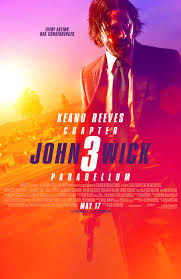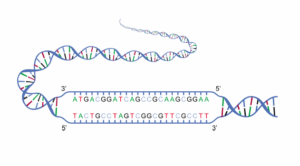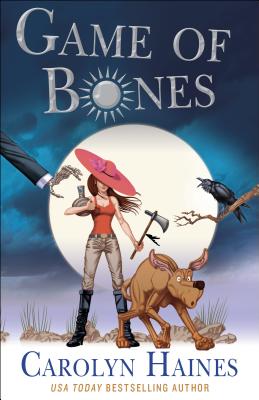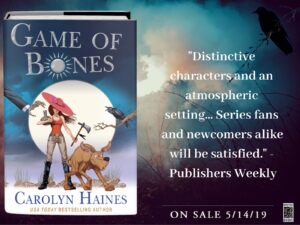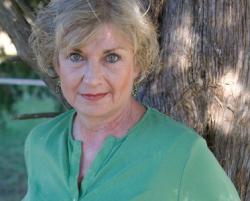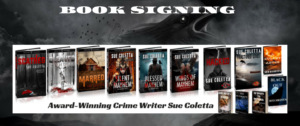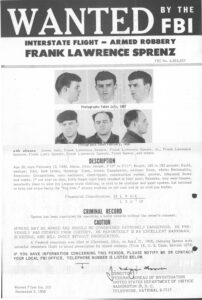By Sue Coletta
Today, we have another brave writer who submitted their first page. My comments will follow.
Title: Go
Ch 1 Go, Said the Bird
I twirled a pencil. My second-graders rustled papers, whispered. We all watched the clock, how slow its hands moved.
The bell rang. I let out a breath.They scrambled into coats and jackets.
“…tomorrow, Miss Glass,” several shouted.
I plodded from school to the Blue Lake City cemetery. After the years I couldn’t, I now forced myself to visit my parents once a month.
“I’m fine,” I told my mother. “Really.”
I kicked at the slush of the last snow. The inside of my fur-lined boots grew wet. Someday, I’d mean those words.
A caretaker tended the graves. No gray lumps of old snow, no weeds, no trash.
I trudged back to Northside, food wrappers rattled on broken pavements, burnt out street lights, the remains of the last three snowstorms packed the gutters.
On Huron Avenue, a tall cop hustled a small, brown-skinned woman out of Ray’s Hardware.
“I did not steal,” she said.
He leaned forward. She retreated and bowed her head.
“Look at me, bitch.”
That deep voice. Redmann. I twisted my fingers together.
For years I’d avoided him, and he might not recognize in a twenty-six year old the terrified child he dragged out of the closet.
He never paid. No justice for my parents.
I ducked my head and hurried into Johnny O’s store.
A grin lit his broad ochre-colored face, and dissolved into drawn brows. “Long face, Nettie. ”
I leaned on the counter. He whipped out two pineapple popsicles and handed me one. Too sweet, the sour taste of lying to my mother, of seeing her killer, thick in my throat.
“You visit your parents today?”
I raised an eyebrow.
“Johnny O is psychic.” He clapped a hand to his heart. “But Nettie does not believe. Woe, woe.”
A smile tugged at my mouth.
“Better.” He patted my hand. “You need a boyfriend.”
“And here I thought I didn’t have a mother.” Thrusting Redmann out of my thoughts–I had to–I bought tomato soup, Swiss cheese, and bread while we made plans for dinner and checkers later in the week.
Across the street, Redmanm hauled the woman toward his car.
***
This is a tough opener for me to critique, because I get the feeling Anon is early in his/her writing journey. When we begin our writing journey, magic surrounds us. We can’t know what we don’t know, and there’s a magical beauty in that simplicity. A harsh critique at this writing stage could do more harm than good. It’s in this vein that I offer a few suggestions to help nudge this brave writer forward.
First lines
Your first sentence should entice the reader to continue on to the next sentence and the sentence after that. “I twirled a pencil.” Doesn’t accomplish that. There’s nothing particularly wrong with the sentence, except that it’s generic. Meaning, it delivers no punch, nor does it hint at the genre, nor does it promise an intriguing storyline to come. It just sort of sits there.
We’ve discussed first lines many times on the Kill Zone. Back in 2010, Joe Moore described a first line this way:
We’ve often discussed the power (or lack of) that first lines have on the reader. It can’t be emphasized enough how much a first line plays into the scope of the book. For just like first impressions, there is only one shot at a first line. It can set the voice, tone, mood, and overall feel of what’s to come. It can turn you on or put you off—grab you by the throat or shove you away. It’s the fuse that lights the cannon.
Joe nailed it! See how important your first line is, Anon? For further study, type “first line” in the search box and you’ll find numerous articles on this subject.
Point of View
Nailing Point of View is one of the hardest elements to grasp. It’s also imperative to learn, because readers connect with our main characters through the proper use of POV.
The third sentence “We all watched the clock, how slow its hands moved.” is a point of view slip. As Laura mentioned in a recent first page critique, “we” implies a rare, first-person, plural narrator. If we’re inside the teacher’s head, then we can’t know what the students are thinking i.e. “how slow its hands moved.”
You could show their boredom through the teacher’s perspective …
Carlton’s chin slipped off a half-curled palm, his elbow unable to hold the weight of his head till the bell rang. (then add a line or two of internal dialogue to show us the MC’s reaction –>) Why he insisted on sitting in the front row still baffled me.
Clarity
We never want to confuse the reader or make them re-read previous paragraphs in order to know what we’re talking about. My remarks are in red.
I plodded from school to the Blue Lake City cemetery. After the years I couldn’t, I now forced myself to visit my parents once a month.
With this sentence structure, the reader has no idea what the narrator means by “I couldn’t” until the end of the sentence. That’s too late. Easy fix, but it’s something you’ll want to look for in your writing.
Rewrite option: After years of avoiding my parents’ grave, I made it a point to swing by the cemetery once a month.
“I’m fine,” I told my mother (mother’s gravestone?). “Really.”
I kicked at the slush of the last snow. The inside of my fur-lined boots grew wet. Someday, I’d mean those words.
Here again, you’ve given us context too late. “Someday, I’d mean those words” should come before “I kicked at the slush of the last snow.” Which I love, btw. Great visual.
Dialogue
If you haven’t read How to Write Dazzling Dialogue by TKZ’s own, James Scott Bell, do it. The book’s a game-changer.
On Huron Avenue, a tall cop hustled a small, brown-skinned (<- is it your intention to show Redmann as a racist? If so, just tell us she’s Hispanic. Also “small” and “tall” are generic terms. “Petite” implies small in stature, though) woman out of Ray’s Hardware.
“I did not steal,” she said. Dialogue should sound natural. This woman sounds stiff and unconcerned. If she’s being unfairly accused of stealing, make us feel her frustration.
He leaned forward (why would he lean forward? Did you mean Redmann invaded the Hispanic woman’s personal space? Towered over her?) She retreated and bowed her head. Try to be as clear as possible. “She coward” or “quailed back” works.
Possible rewrite: Redmann invaded the petite woman’s personal space, and she coward.
“Look at me, bitch.” Add body cue so we know who’s speaking. Perhaps something like, his spittle flew in her face.
That deep voice. Redmann. I twisted my fingers together. I don’t understand this body cue. Do you mean, my hand balled into a fist? Which implies anger.
For years I’d avoided him, and he might not recognize in a twenty-six–year–old the terrified child he dragged out of the closet. Delete the MC’s age. Or make it less obvious that you’re sneaking in information. Something like: For twenty years, I’d avoided him. Little did he know, I wasn’t the same terrified six-year-old who huddled in the closet while he murdered my family. Soon, he and I would reconnect.
Good luck dragging me out of the closet by my hair now, asshole. (Please excuse the foul language. I’m trying to show Anon how to use inner dialogue to portray rage, and the nickname works to prove my point.)
Sparse Writing
There’s a big difference between writing tight and writing that’s too sparse.
He never paid. No justice for my parents.
Here again, my initial reaction was, paid what? Sure, you cleared up the confusion in the second sentence, but that’s too late. Be concise. Don’t let your writing get in the way. “Redmann never paid the price for killing my parents” works just fine.
I’m going to stop there. All in all, I like where the story is headed. A schoolteacher runs into the killer who murdered her family. Intriguing premise!
Favorite line: I kicked at the slush of the last snow.
TKZ family, please add your thoughtful and gentle suggestions for this brave writer.



